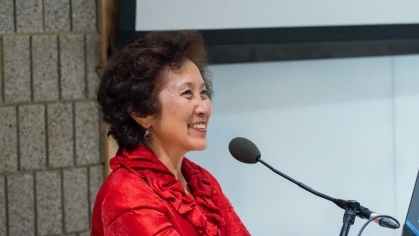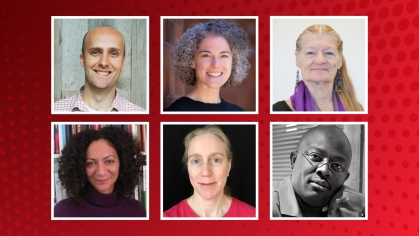Rutgers Professor Rahul Mittal Uses Global Grant to Strengthen Health and Community Services in Cornwall

With support from a Rutgers Global Grant, Dr. Rahul Mittal is helping build a clearer picture of Cornwall’s voluntary sector to advance rural health and care equity.
Rahul Mittal, assistant professor in the Department of Health Informatics at Rutgers School of Health Professions, is harnessing the power of international collaboration to support health and social care in underserved communities abroad. Awarded a 2024 Rutgers Global Grant for International Collaborative Research, Dr. Mittal is leading a project in Cornwall, United Kingdom, titled “Taxonomy of the Voluntary Sector in Cornwall.”
In partnership with the University of Exeter’s Social Innovation Group, led by Professor Catherine Leyshon and Professor Michael Leyshon, and the Cornwall Voluntary Sector Forum, the team are working to catalog and categorize voluntary and community sector enterprises (VCSEs) across Cornwall and the Isles of Scilly. Their goal: to build a sustainable, comprehensive database that sheds light on the wide range of community-driven organizations—from small, informal neighborhood groups to large anchor institutions delivering essential services, including those mandated by the government.
“There are an unknown number of informal, unregistered, active voluntary groups across the country that perform an essential role in strengthening their communities and enriching individuals who come in contact with them,” Mittal noted in his proposal. “This significant piece of work will help us develop a better understanding of the VCSE sector—knowledge that can be maintained and built upon over time.”
A Critical Need in a Changing Health Landscape
The timing of this research is key. Across the UK, and particularly in rural areas like Cornwall, VCSEs are increasingly stepping in to support public health and care delivery systems under pressure from aging populations and rising demand. However, little is known about the full scope of these organizations, especially in geographically dispersed communities where poor public transport, long travel times, and low population density complicate service delivery.
Dr. Mittal’s work addresses a pressing question shared by both the UK and the U.S.: how can health and social care systems collaborate more effectively with voluntary organizations to meet complex community needs?
The collaboration with Exeter University—renowned for facilitating global, cross-border learning in health and community care—positions Rutgers at the heart of an important international dialogue.
Vital Signs 2025: A Vision for Cornwall’s Future
In June, Dr. Mittal shared exciting progress on the project, announcing the launch of Vital Signs 2025 – Cornwall & Global Health Connections, a modern update to the Cornwall Community Foundation’s original 2017 report on community needs and priorities.
The updated report will integrate artificial intelligence–assisted data visualization, cross-sector analysis, and direct community input to spotlight key trends across housing, health, education, and the environment. It also aims to explore how rurality and transportation barriers intersect with health equity—not just in Cornwall, but globally.
Through a blend of qualitative and quantitative methods, Vital Signs 2025 aspires to provide a deeper, more actionable understanding of life in Cornwall’s communities, while also contributing to global conversations on the social determinants of health.
Global Collaboration, Local Impact
Dr. Mittal’s project exemplifies the power of academic collaboration in addressing real-world challenges. By creating a robust taxonomy of Cornwall’s voluntary sector, his work will not only inform local policy and resource allocation but also serve as a model for communities facing similar challenges around the world.
As western economies continue to grapple with how to meet the growing demands of health and social care, this partnership is proving that shared insights—and shared commitment—can help drive meaningful change.



